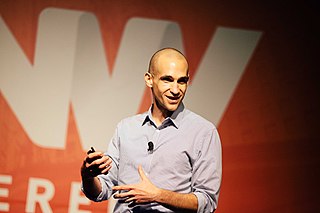Top 40 Quotes & Sayings by Nir Eyal
Explore popular quotes and sayings by an American author Nir Eyal.
Last updated on April 20, 2025.
Don Draper-style advertising is really only available to the biggest brands out there. It's only commodity goods that use those kind of messages because they have to differentiate goods that are really hard to differentiate between - Shell gasoline versus Exxon, Coke versus Pepsi, Sprint versus T-Mobile, it's all the same thing!
The market for religious apps is fiercely competitive; searching for 'bible' in the Apple App Store returns 5,185 results. But among all the choices, YouVersion's Bible, funded by LifeChurch.tv of Edmond, Oklahoma, seems to be the chosen one, ranking at the top of the list and boasting more than 641,000 reviews.
AdNectar was born out of a class project at the Stanford Graduate School of Business in January of 2008. The founders are all avid social network users and we wanted to see if we could discover the optimal way for advertisers to reach consumers in a way that felt authentic and organic, and yet was scalable to a mass audience.
The Bible app is designed to make absorbing the Word as frictionless as possible. For example, to make the Bible app habit easier to adopt, a user who prefers to not read at all can simply tap a small icon, which plays a professionally produced audio track, read with all the dramatic bravado of Charlton Heston himself.



















